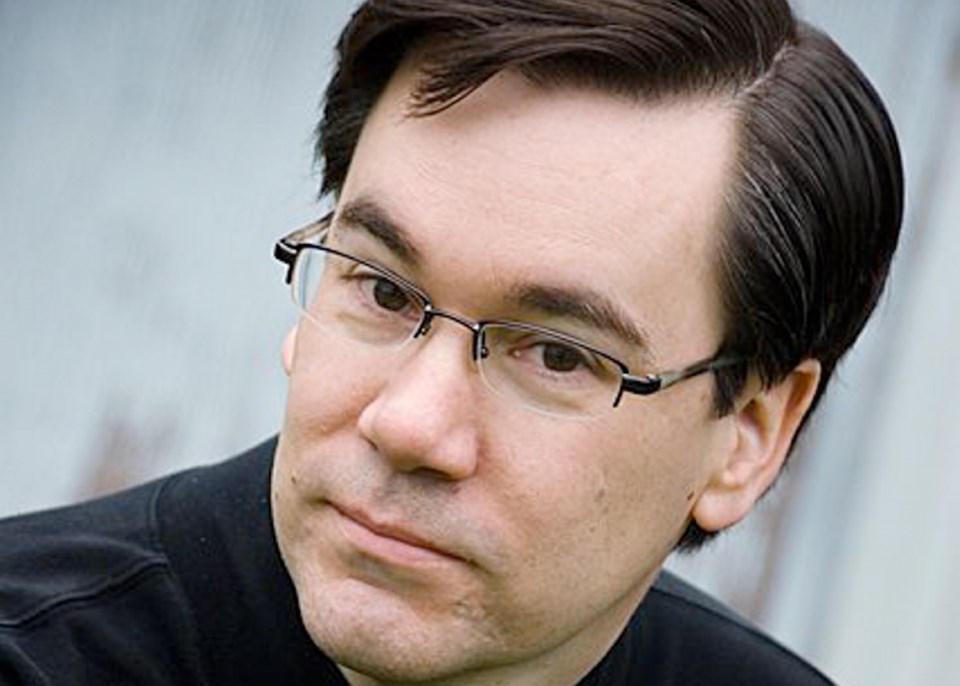What: Victoria Symphony (Masterworks): Rachmaninoff and Brahms
When/where: Monday, Sept. 23, 8 p.m., Royal Theatre
Tickets: $35-$88. Call 250-386-6121 or 250-385-6515; online at ; in person at the Royal Theatre and the Victoria Symphony box office (610-620 View St.)
What: University of Victoria School of Music, Emerging Artists Alumni Series: Echéa Quartet
When/where: Wednesday, Sept. 25, 8 p.m., Phillip T. Young Recital Hall (School of Music, MacLaurin Building, University of Victoria).
Tickets: Admission by donation
Christian Kluxen’s first two seasons as the Victoria Symphony’s music director each began with an ambitious program culminating in a Mahler symphony — the First and the Fourth, respectively.
The current season, Kluxen’s third, will close with Mahler (the Third Symphony), though its opening concerts, this weekend, will be more conventional, featuring two monumental late-Romantic masterpieces that are audience favourites: Rachmaninoff’s almost preposterously difficult Piano Concerto No. 3 and Brahms’s First Symphony.
Kluxen appears to be surveying Brahms’s four symphonies systematically, having to date conducted the Fourth (in 2017) and the Third (in 2018), in performances that were technically polished as well as ardent and insightful.
Brahms’s symphonies are all highly individual and make unique musical demands; it has been interesting and revealing to hear Kluxen grapple with them. Among the particular challenges of No. 1 is that the struggles of its famously fraught, two-decade-long gestation left their mark on the final form of the music.
The Rachmaninoff Third will feature the local debut of Russian pianist Georgy Tchaidze, who lives in Berlin.
Born in St. Petersburg in 1988, Tchaidze has a concert career that takes him around Europe and to China, New York and elsewhere, including Canada. In 2009, he won the Honens International Piano Competition in Calgary, and he subsequently featured in three CD releases on the Honens label. He has performed with the National Arts Centre Orchestra, in Ottawa and at 91ԭ�� festivals, has toured with the Toronto-based Cecilia String Quartet and has played for the Governor General.
In 2017, Tchaidze was a finalist in the prestigious Van Cliburn International Piano Competition, in Fort Worth, Texas.
Next Wednesday, the University of Victoria’s School of Music, in its admirable Emerging Artists Alumni Series, will present the Echéa Quartet, one of whose members, violinist Aliayta Foon-Dancoes, is a 91ԭ��ite who got her Bachelor of Music degree at UVic in 2015 and is currently pursuing a master’s at the Royal Academy of Music, in London.
The Echéa Quartet was formed at the Royal Academy in 2017, and is that institution’s Fellowship String Quartet for 2019-20, while maintaining an international concert schedule.
Since Aug. 20, the quartet has been on a 15-city tour of B.C. and Alberta. UVic is the penultimate stop on this tour, which will end on Sept. 28 on Gabriola Island.
Wednesday’s program will open with one of Haydn’s Op. 20 quartets, but will otherwise comprise two works of the modern repertoire both comprising a single long, complex movement: Hungarian composer György Ligeti’s String Quartet No. 1, Métamorphoses nocturnes (1954), a “variation form without a theme”; and 91ԭ�� composer R. Murray Schafer’s String Quartet No. 4 (1989).
The Echéa Quartet has a special devotion to modern music. It has appeared at new-music festivals, has collaborated directly with composers and has premièred many works. At the 2018 International Anton Rubinstein Competition for Chamber Music, it won a special prize for the best interpretation of a work by Ligeti.
Schafer’s 13 innovative specimens form one of the great modern quartet repertoires. He wrote No. 13 in 2015, after he had been diagnosed with Alzheimer’s disease, and with characteristic candour titled it Alzheimer’s Masterpiece.
Other Schafer quartets bear titles, and while No. 4 does not it is no less evocative or dramatic or individual than the others. It incorporates a theme from the prologue to Patria, Schafer’s mammoth cycle of music-theatre works, and among the influences on the “lonely mood” of the piece, he said, was the recent death of a friend (poet bp Nichol) and the rural Ontario farm where he had been living alone since 1987.
Schafer was also influenced by E.T.A. Hoffmann’s story The Cremona Violin, “in which a mad violinmaker has a daughter with a beautiful voice whom he never allows to sing. When she does so one night, she dies, and at the moment of her death, her father’s Cremona violin cracks. She had been the sound of the instrument.”
At the end of the String Quartet No. 4, the sounds of a voice and a violin (local musicians will perform these parts) steal in from offstage, as though from the Beyond, to haunting effect.



